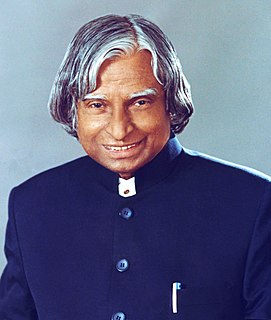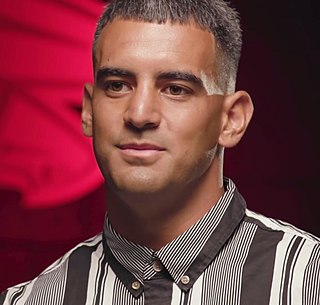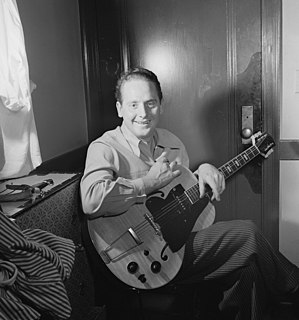Цитата Нила Дональда Уолша
Большинство людей вступают в отношения, ориентируясь на то, что они могут от них получить, а не на то, что они могут в них вложить.
Связанные цитаты
Большинство людей вступают в отношения с прицелом на то, что они могут получить от них, а не на то, что они могут в них вложить. Цель отношений состоит в том, чтобы решить, какую часть себя вы хотели бы «проявить», а не какую часть другого вы можете захватить и удержать. Цель отношений не в том, чтобы иметь кого-то, кто мог бы дополнить вас; но иметь другого, с кем вы могли бы разделить свою полноту.
Я хочу уйти с пути актеров. Я хочу убраться из-под их глаз. Я хочу, чтобы они перестали думать, что снимают фильм. Я хочу, чтобы они просто ушли и жили. Это похоже на то, что вы берете этих великих актеров, помещаете их в аквариум жизни и просто смотрите, как они плавают. Вот что усложняет редактирование, потому что вы получаете все эти прекрасные, незапланированные моменты.
Мне не нужно надевать драгоценности, чтобы чувствовать себя значимой. Я бы предпочел отказаться от них в пользу менее удачливых людей. Мне не нужно украшать свое тело золотом, и я не критикую тех, кто это делает, но лично я предпочитаю быть рядом со своей семьей и видеть, как они счастливы, потому что для меня это дороже золота.
Лидеры выбирают благородные цели и преследуют их с такой интенсивностью, что другие присоединяются к ним. ... С этой точки зрения величайшим из всех лидеров был Иисус Христос. ....Пусть ваш выбор будет таким сильным и притягательным, что вы будете привлекать людей к жизни (Дуэт. 30:19, ...поэтому изберите жизнь.-), а не к смерти, к благословению, а не к проклятию.
Успешные люди сохраняют позитивный настрой в жизни независимо от того, что происходит вокруг них. Они сосредоточены на своих прошлых успехах, а не на прошлых неудачах, и на следующих действиях, которые им нужно предпринять, чтобы приблизиться к достижению своих целей, а не на всех других отвлекающих факторах, которые им преподносит жизнь.
Многие люди, с которыми я работаю, не актеры, или они впервые в кино. Я не пытаюсь формировать выступления, выманивать из них выступления. Это больше похоже на то, что я хочу поставить их в ситуации, которые естественно работают, или позволить им быть самими собой. Если этого не происходит, я просто полностью переключаю его, а не пытаюсь заставить его работать.
По мере того, как вы развиваете отношения в своей команде, вы должны узнать, как ваши товарищи по команде реагируют на крики или как обнять их и показать им, как что-то делать. Вы должны построить эти отношения и понять, кто этот человек и как он реагирует, и выбрать свой путь, чтобы вести его, чтобы, надеюсь, помочь всем.
Иисус выражал сильный гнев по отношению к тем, кто был безнравственным, таким как самодовольные фарисеи, но он никогда не предполагал, что их демонизируют. Однако по отношению к демонизированным он никогда не выражал гнева; скорее он проявлял только сострадание. Как отмечает Лэнгтон, «скорее жалость, чем гнев, характеризует отношение Иисуса к одержимым... Он обращается с ними так, как если бы они были жертвами невольной одержимости». Действительно, он обращается с ними так, как будто они жертвы войны. Ибо, по его мнению, это именно то, что они есть.
Согласно исламским предписаниям, мужчины не могут войти в дом женщины, которую они не знают, и поэтому им нужны женщины в этих усилиях, чтобы войти в дома, где они находятся - где они ищут возможных женщин-террористок, женщин-пособниц Боко. Харам и пытаются либо разоружить их, либо вывести из этого движения.
Я думаю, что самое важное в игре — это выйти с уверенностью, посмотреть людям прямо в глаза и сказать: «Вот я», и пойти и делать свое дело. Как только они узнают, что вы уверены, они будут уверены. Пока вы приспосабливаетесь к ним, у вас не будет проблем. Вы должны смотреть на них, узнавать, чего они хотят, и давать им это. Они не платили за то, чтобы выйти и посмотреть на гобелены.
Сострадание, однако, должно означать предоставление механизма для избавления от бедности, а не просто поддержание людей в нищете путем предоставления подачек. Делая это, мы даем им возможность поднять свое личное положение, что в конечном итоге уменьшает нашу потребность заботиться о них и дает им возможность проявлять сострадание к другим.


































